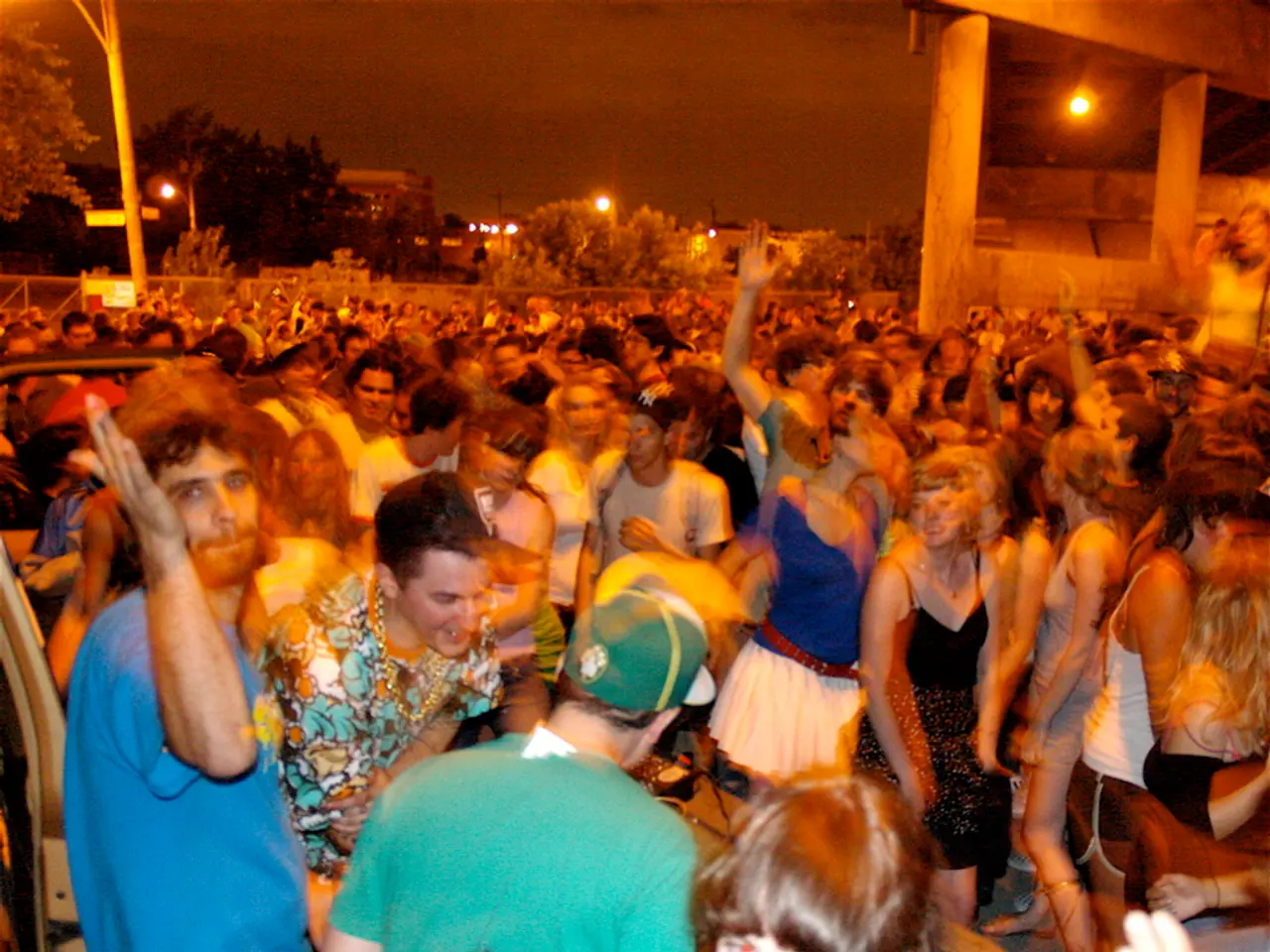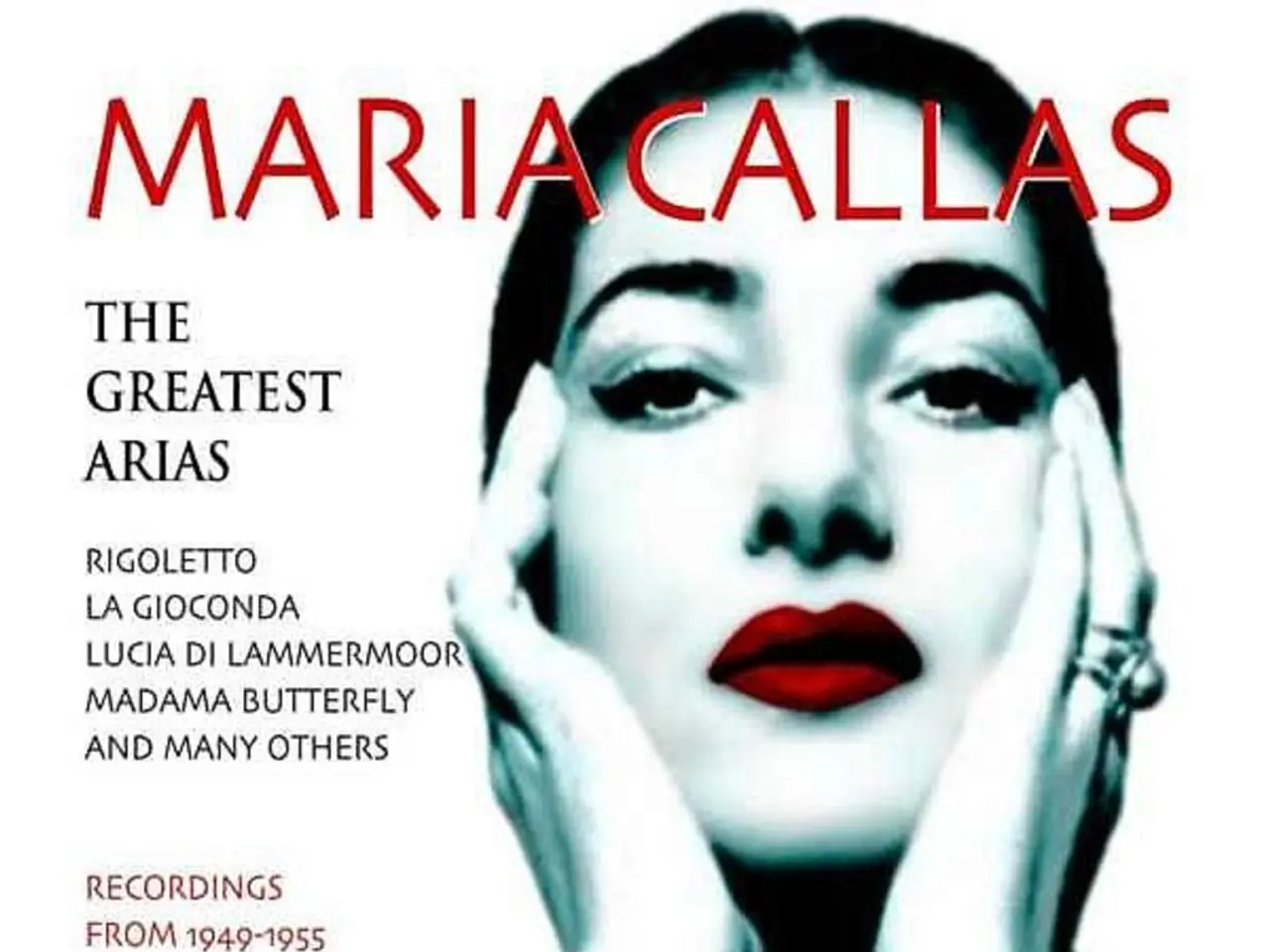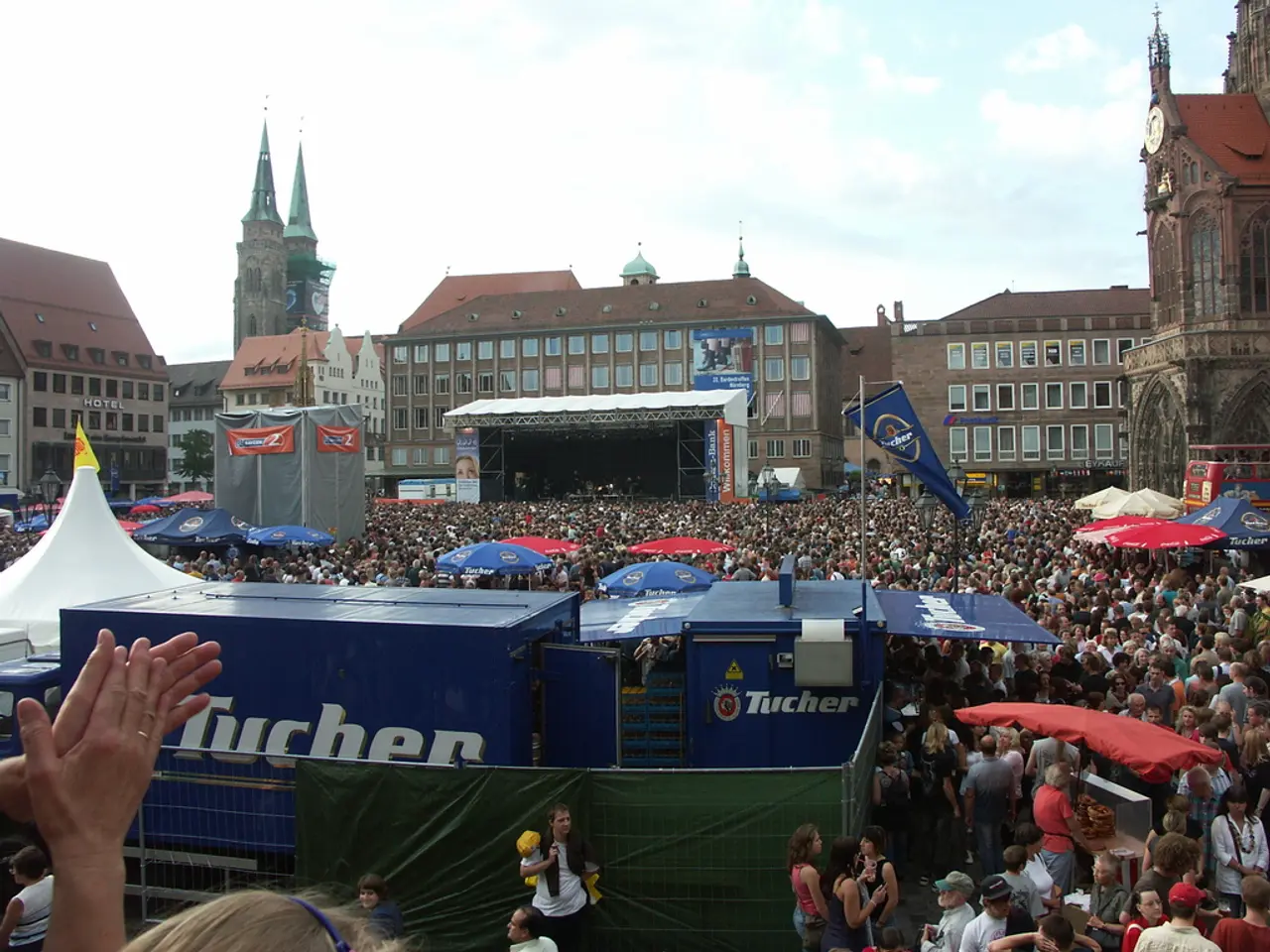University of the Arts Bremen honors 350th birthday of baroque composer Reinhard Keiser with a concert scheduled for 8th November.
Reinhard Keiser, a Baroque composer born 350 years ago, will be honoured with a special concert in Bremen, Germany. The event, taking place on November 8th at 7:30 PM, will be held at the HfK Gallery, not the University of the Arts Bremen as previously announced.
The concert will feature the HfK Baroque Orchestra, performing arias, recitatives, and a complete cantata from Keiser's operas and other works. The programme will include selections from his operas "Orpheus", "Claudius", "Adonis", "Desiderius", "Pomona", "Fredegunda", "Masagniello", "Arsinoe", "Janus" from the years 1697 to 1715, as well as instrumental interludes for variety and visual enjoyment.
The concert will also showcase Baroque dance performances, an art form that originated in France and was used as a means to demonstrate power and wealth. These performances will offer a captivating visual complement to the music, reflecting the European etiquette of the time.
Keiser, who spent much of his career based in Hamburg, was the director and chief composer for the Hamburg Opera, producing many operas between 1694 and the 1720s. His long tenure in Hamburg made the city one of the foremost centers of German opera during the Baroque period. Among his most renowned operas are "Croesus" (1710) and "Octavia" (1705), both celebrated for their dramatic intensity and nuanced storytelling.
The so-called Hamburg Opera at the Gänsemarkt, the first permanent opera house in Germany, existed from 1679 to 1738. Keiser's work paved the way for later composers such as Georg Philipp Telemann and Johann Adolf Hasse, who continued developing Hamburg’s operatic tradition. Modern ensembles and festivals, such as the Akademie für Alte Musik Berlin and the Boston Early Music Festival, continue to revive and perform his works, reflecting his lasting importance in Baroque opera repertoires.
Admission to the concert is free, making it an unmissable opportunity for music lovers to experience the brilliance of Reinhard Keiser's compositions. The image above shows the Baroque orchestra of the HfK performing in honor of Reinhard Keiser, offering a glimpse of the musical mastery that awaits concert-goers. Don't miss this chance to immerse yourself in the rich history and captivating music of Baroque opera.
[1] Grove Music Online. (2022). Reinhard Keiser. Retrieved from https://www.oxfordmusiconline.com/grovemusic/view/10.1093/gmo/9781561592630.001.0001/omo-9781561592630-e-0000043975 [2] Early Music Review. (2016). Reinhard Keiser - The Complete Operas. Retrieved from https://www.earlymusicreview.com/reviews/reinhard-keiser-the-complete-operas/ [3] MusicWeb International. (2021). Reinhard Keiser - Orpheus. Retrieved from https://www.musicweb-international.com/classrev/2021/Sep/Keiser_Orpheus.htm [4] Opera Today. (2018). Reinhard Keiser's "Octavia" - A Baroque Opera for the 21st Century. Retrieved from https://www.operatoday.com/reinhard-keiser-s-octavia-a-baroque-opera-for-the-21st-century/
The concert, honoring Baroque composer Reinhard Keiser, will feature a mix of entertainment and music, as the HfK Baroque Orchestra performs arias, recitatives, and complete cantatas from his operas, including selections from "Orpheus," "Claudius," "Adonis," "Desiderius," "Pomona," "Fredegunda," "Masagniello," "Arsinoe," "Janus," and instrumental interludes for variety and visual appeal. Additionally, Baroque dance performances will offer a captivating visual complement to the music, reflecting European etiquette of the time.








